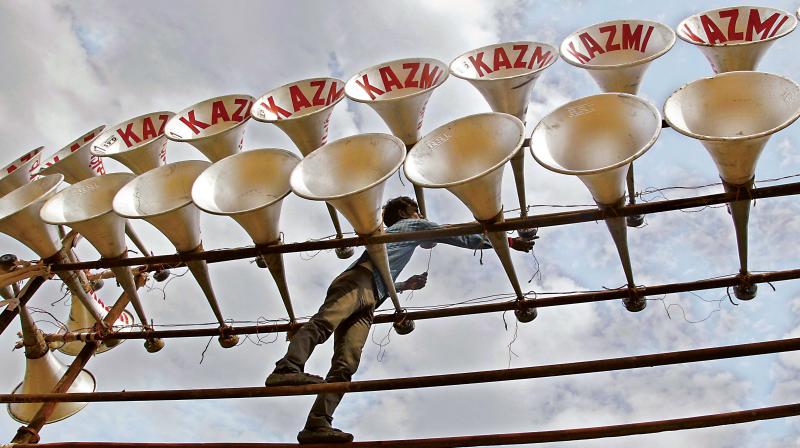Guest column: This festival season, take care of your ears

With several festivals round the corner, noise pollution could become a major challenge in the city. The increasing number of vehicles on the roads already contribute to the noise pollution in a big way. It’s high time we did something about this as I see around eight to 10 patients every month with a hearing problem and this figure is rising due to lack of awareness.
A sudden exposure to loud noise from speakers or drums can cause a temporary threshold shift of nerves in people with normal hearing. While often people tend to recover from this within 24 to 48 hours, sometimes the ear nerves are permanently scarred leading to acute ear damage. And for people suffering from hearing problems, exposure to sudden loud noise can have a devastating impact on their overall health. A constant noise of more than 60 to 80 decibels can even lead to hearing loss.
And long exposure to loud noise can lead to tinnitus (buzzing sound in the ear), which can further lead to psychological problems in people. Besides issues with hearing, insomnia, irregular blood pressure and fluctuating sugar levels can also be a result of exposure to loud noise. We see constant headaches, mood disturbance, anger and irritability as well among patients.
Most of the loudspeakers as well as woofers that are played, have a sound of more than 100 decibels, which can lead to hearing troubles. Therefore, people should make sure they are not too close to loudspeakers during celebrations. Besides noise from loudspeakers, vehicular noise pollution affects the traffic police as they are constantly exposed to loud honking. Use of ear plugs can help reduce the volume they are exposed to by 20 decibels. The use of cotton balls too can help to a certain extent.
While there is a time limit for use of loudspeakers, there is no authority to monitor their volume. Stringent measures should be taken by the government to control noise pollution. The traffic department could put up ‘No Honking’ and ‘Reduce Noise’ signboards in specific areas close to hospitals , schools and homes. It is also important to create awareness among the people about the effects of loud noise and excessive honking.
(Dr. Santosh S., Consultant-ENT, Head and Neck Surgery, Columbia Asia Hospital)

